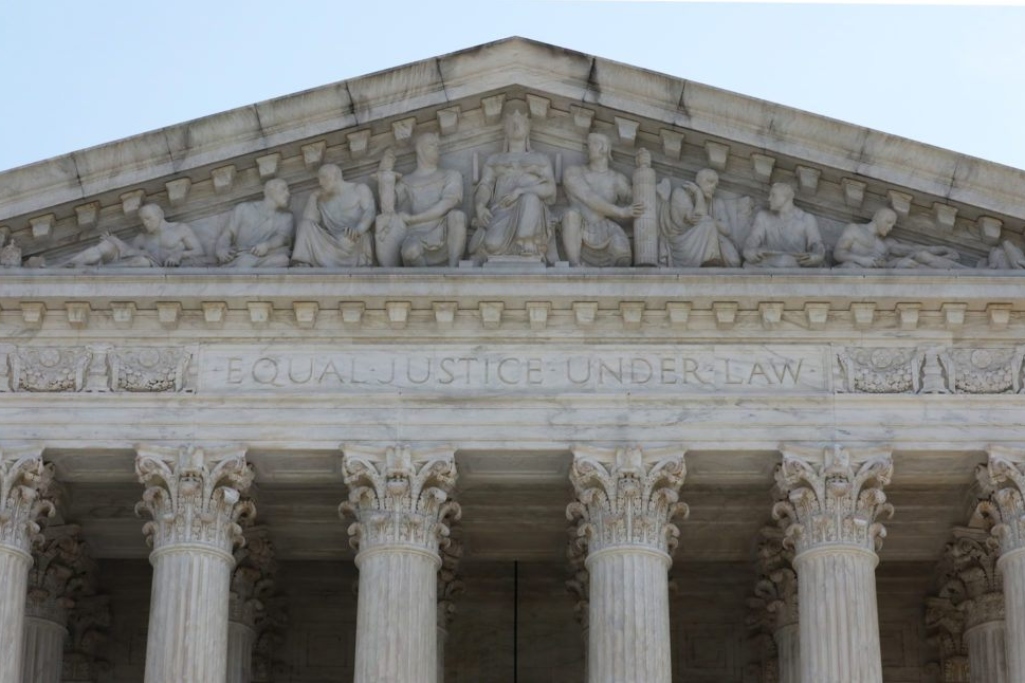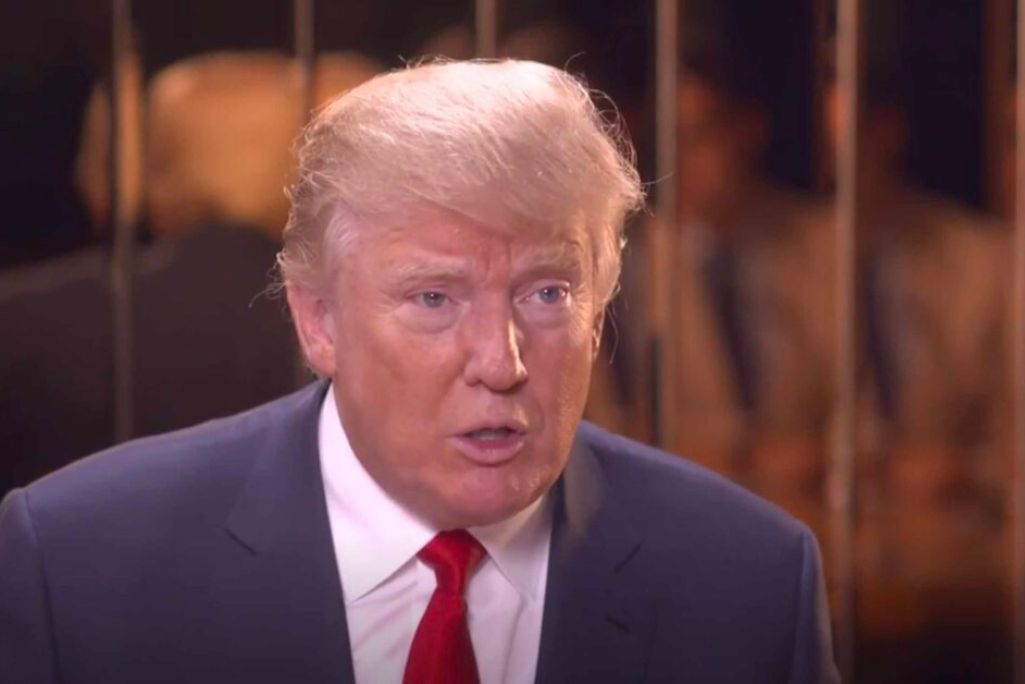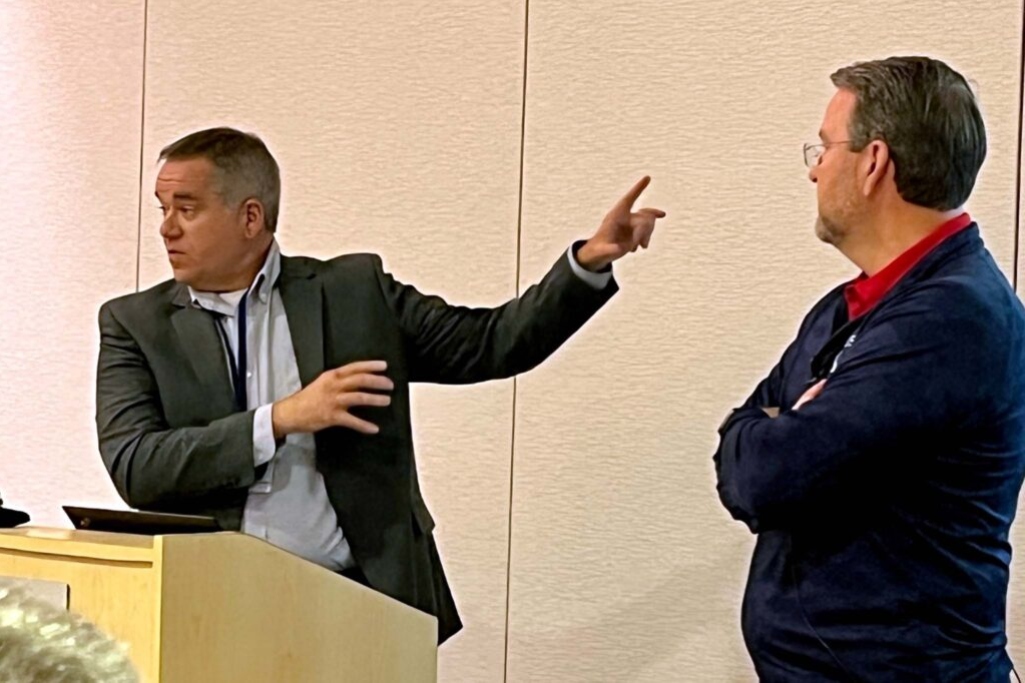
The U.S. Supreme Court.
WASHINGTON (BP) — The Supreme Court heard oral arguments on Monday (March 31) in a case that will determine whether a Catholic benevolent ministry qualifies for a tax exemption granted to churches.
At issue in the case, Catholic Charities Bureau, Inc. v. Wisconsin Labor & Industry Review Commission, is the commission’s ruling that the Catholic Charities Bureau (CCB) and its four sub-entities, which provide various social services to a diversity of needy communities, do not operate for religious purposes and don’t qualify for an exemption from the state’s unemployment insurance program.
The exemption, originally sought by the CCB back in 2016, would allow Catholic Charities and its sub-entities to enroll in the Wisconsin Bishops’ Church Unemployment Pay Program (CUPP), which the Catholic plaintiffs contend is more efficient, less costly and provides the same benefits as the state’s program.
In denying tax exemption, the Wisconsin Supreme Court pointed out the CCB’s sub-entities do not require their employees nor those served to be Catholic and do not offer religious training nor attempt to promote the Catholic faith.
During Monday’s arguments, Neil Gorsuch, one of the court’s reliably conservative justices, said a fundamental principle of the First Amendment was that “the state shouldn’t be picking and choosing between religions.”
Liberal justice Elena Kagan appeared to agree, saying, “I thought it was pretty fundamental that we don’t treat some religions better than other religions.”
CCB, the social ministry arm of the Diocese of Superior in northern Wisconsin, serves those in need as “an effective sign of the charity of Christ,” according to court documents, but makes no distinction of religion in its services or employment.
The Ethics & Religious Liberty Commission (ERLC) joined a variety of religious denominations in filing an amicus brief urging the High Court to rule in favor of the Catholic ministry. The ERLC was joined in the brief, filed on Feb. 4, by the General Conference of Seventh-day Adventists, the United States Conference of Catholic Bishops and several others.
“It is not right for the government to prescribe religious practice or compel a religious group to conform to its standards of what qualifies as ‘real’ religion,” ERLC Vice President Miles Mullin told Baptist Press (BP). “In fact, the state has no right to impose penalties for religious opinions of any kind. The state of Wisconsin is doing just that in its determination that the mercy ministry of the Catholic Diocese of Superior did not meet its standards for ‘real’ religious activity and thus disqualified them for a tax exemption.”
Eric Rassbach, a lawyer representing the Catholic Charities, said the fact that the charities do not offer religious training or proselytize does not mean they aren’t religious in nature.
“I don’t think that detracts from the fact that this is part of a religious mission,” he said. “The Catholic Church tells people that you’re supposed to help other people.”
Rassbach continued this argument in his opening statement on Monday, saying Wisconsin’s determination draws theological lines.
“The Wisconsin Supreme Court got it wrong when it interpreted a state law religious exemption to favor what it called ‘typical’ religious activity, and when it held that helping the poor can’t be religious because secular people help the poor too,” Rassbach said.
“To resolve this case, this court need do nothing more than say that the Constitution doesn’t allow courts to do that. Most courts have no difficulty applying religious exemptions constitutionally. The problem here is that Wisconsin draws distinctions along theological lines, something that this court has repeatedly forbidden. The problem is how the Wisconsin Supreme Court applied the religious purposes exemption.”
Colin Roth, an assistant attorney for the Wisconsin Department of Justice, argued on behalf of the defense that the state limits the religious exemption to organizations that demonstrate worship, proselytization or education in order that it might avoid unnecessary doctrinal disputes over whether or not a terminated employee should receive unemployment benefits.
“This religious accommodation solves a particular problem posed by the unemployment insurance system,” he said. “When determining benefit eligibility, the state must often resolve disputes over whether an employee was discharged for misconduct. If so, no benefits.
“For those employers (churches and their affiliates), misconduct disputes could often force the state to decide whether employees complied with religious doctrine. Wisconsin gives those kinds of employers a wide berth by prophylactically exempting them. But because exemption means employees lose state unemployment exemption coverage altogether, exemption is limited to the employers most likely to draw the state into doctrinal disputes.”
Mullin said the High Court should side with the Catholic Charities as the issue is ultimately about religious liberty.
“According to the state, the diocese was not organized in the right way, did not undertake its ministries in the right way and did not hire the right people,” he said. “As stated in the ERLC’s amicus brief, how religious groups, including Southern Baptists, choose to fulfill their mission is beyond the state’s authority to direct. The government has no competency to judge such matters. That judgment must be left to God.”
A decision in the case is expected before the end of the High Court’s term in June.
(EDITOR’S NOTE — Timothy Cockes is news editor at New Orleans Baptist Theological Seminary.)


